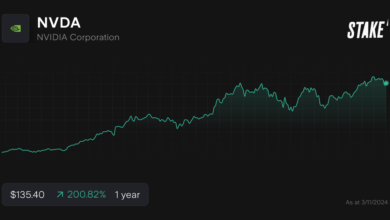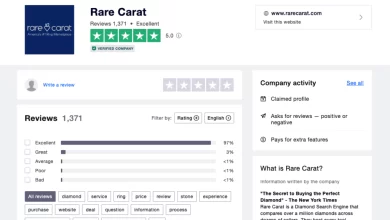The real estate market has long been a cornerstone of investment strategies for individuals and institutions. In recent years, accredited investors—those who meet specific financial criteria set by regulatory bodies—have played a transformative role in shaping the real estate landscape. Their influence extends from innovating investment strategies to driving the development of new real estate marketplaces.
1. The Role of Accredited Investors in Real Estate
Accredited investors are defined by their financial status, allowing them access to exclusive investment opportunities that are typically unavailable to the general public. These opportunities often include private equity funds, hedge funds, and institutional-grade real estate investments. The financial criteria for becoming an accredited investor usually involve having a net worth exceeding $1 million (excluding primary residence) or an annual income of over $200,000 ($300,000 with a spouse) in the past two years.
This privileged access enables accredited investors to engage in high-stakes real estate transactions and opportunities that offer significant returns. Their participation has been instrumental in reshaping various aspects of the real estate market, from investment strategies to the types of properties and projects being pursued.
2. Driving Innovation in Real Estate Marketplaces
Real estate marketplaces have significantly evolved in recent years, thanks in large part to the involvement of accredited investors. These investors leverage technology and digital platforms to access and invest in a broader range of real estate opportunities.
Platforms like Varuna are at the forefront of this transformation, offering accredited investors access to institutional-grade real estate deals previously reserved for large-scale investors or institutional entities. By providing a curated selection of high-quality investment opportunities, Varuna and similar platforms are democratizing access to premium real estate projects.
The rise of digital real estate marketplaces has made it easier for accredited investors to diversify their portfolios, access new markets, and participate in innovative investment structures. This shift is not only expanding investment options but also driving competition and transparency in the real estate market.
3. Enhancing Portfolio Diversification
One of the most significant ways accredited investors impact the real estate landscape is through enhanced portfolio diversification. Traditionally, real estate investing involved purchasing physical properties or investing in real estate investment trusts (REITs). However, accredited investors are now exploring a wide range of investment vehicles, including:
- Real Estate Crowdfunding: This allows investors to pool resources and invest in larger projects, such as commercial developments or multifamily properties.
- Real Estate Syndications: These involve pooling capital with other investors to fund real estate projects, often managed by experienced sponsors.
- Institutional Real Estate Funds: These funds offer access to high-quality real estate investments with the added benefit of professional management.
By leveraging these investment vehicles, accredited investors can spread their capital across various asset classes, geographic locations, and property types, reducing risk and optimizing returns.
4. Shaping the Development of High-Quality Real Estate Projects
Accredited investors are also crucial in developing high-quality real estate projects. Their involvement gives developers the capital to undertake large-scale projects and innovative developments. This can include:
- Mixed-use developments are projects that combine residential, commercial, and retail spaces to create vibrant, multifunctional environments.
- Green Building Initiatives: Investments in sustainable and environmentally friendly building practices, such as energy-efficient designs and eco-friendly materials.
- Urban Redevelopment: Funding for the revitalization of underdeveloped or distressed urban areas, leading to improved infrastructure and community benefits.
The capital provided by accredited investors enables developers to pursue ambitious projects that might otherwise be financially unfeasible. This not only enhances the quality of real estate but also contributes to urban renewal and economic growth.
5. Utilizing Data and Technology for Informed Decisions
Accredited investors are increasingly using data and technology to make informed investment decisions. Advanced analytics, big data, and artificial intelligence are employed to evaluate potential investments, forecast market trends, and optimize portfolio performance. Key technological advancements include:
- Predictive Analytics: Tools that analyze historical data and market trends to forecast future property values and investment performance.
- Virtual Tours and 3D Modeling: Technologies that allow investors to explore properties and developments remotely, improving decision-making and reducing the need for physical site visits.
- Blockchain and Smart Contracts: Innovations that enhance transparency and security in real estate transactions, streamlining processes and reducing fraud.
By integrating these technologies into their investment strategies, accredited investors can gain deeper insights into market dynamics, identify high-potential opportunities, and manage their portfolios more effectively.
6. Influencing Market Trends and Investment Preferences
The preferences and behaviors of accredited investors have a significant impact on real estate market trends. As these investors seek higher returns and innovative investment opportunities, they are driving shifts in market dynamics. Some notable trends include:
- Increased Demand for Commercial Properties: There is a growing interest in office spaces, retail centers, and industrial properties, driven by trends in remote work, e-commerce, and logistics.
- Focus on Alternative Real Estate Assets: Accredited investors are exploring non-traditional real estate investments, such as data centers, medical facilities, and senior living communities.
- Emphasis on Sustainability: There is a heightened focus on sustainable and eco-friendly real estate investments, reflecting broader societal trends towards environmental responsibility.
These trends shape the real estate market, influence property values, and guide development projects. Accredited investors, with their significant capital and influence, are pivotal in driving these changes.
7. Navigating Regulatory and Compliance Challenges
As accredited investors become more active in the real estate market, they must navigate complex regulatory and compliance challenges. The real estate industry is subject to a range of regulations, including securities laws, zoning laws, and tax regulations. Key considerations for accredited investors include:
- Understanding Securities Regulations: Ensuring that investments comply with regulations related to private placements, crowdfunding, and other investment structures.
- Adhering to Zoning and Land Use Laws: Complying with local property development regulations, land use, and building codes.
- Managing Tax Implications: Navigating tax considerations, including capital gains, depreciation, and property taxes, to optimize after-tax returns.
Accredited investors should work with legal and financial advisors to ensure compliance with relevant regulations and manage the complexities of real estate investing.
Conclusion
Accredited investors are reshaping the real estate landscape through their influence, innovation, and capital. By leveraging advanced real estate marketplaces like Varuna, exploring diverse investment vehicles, and utilizing cutting-edge technology, these investors are driving significant changes in the market. Their involvement enhances portfolio diversification, shapes high-quality developments, and influences market trends.
Accredited investors continue to play a pivotal role in real estate, and their strategies and preferences will undoubtedly shape the industry’s future. Navigating this evolving landscape requires a keen understanding of market dynamics, regulatory considerations, and emerging opportunities. By staying informed and leveraging the right tools and platforms, accredited investors can successfully navigate the real estate market and achieve their investment goals.





